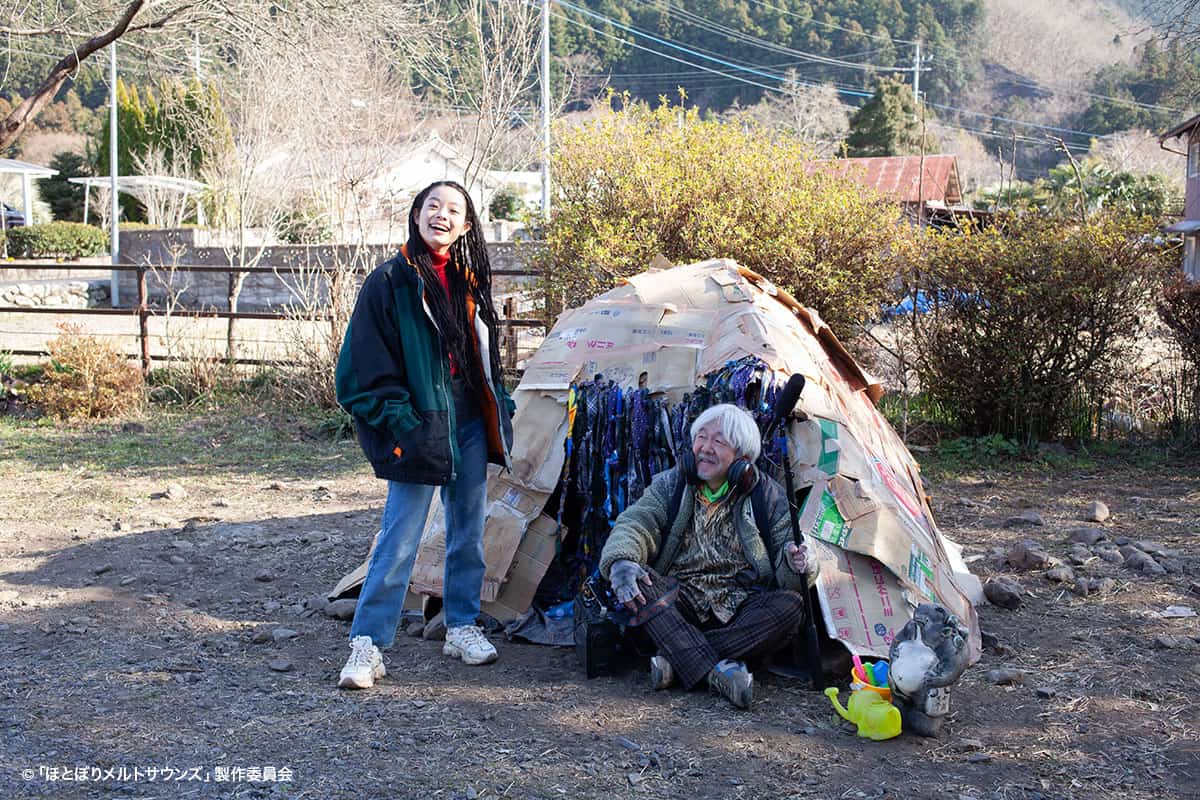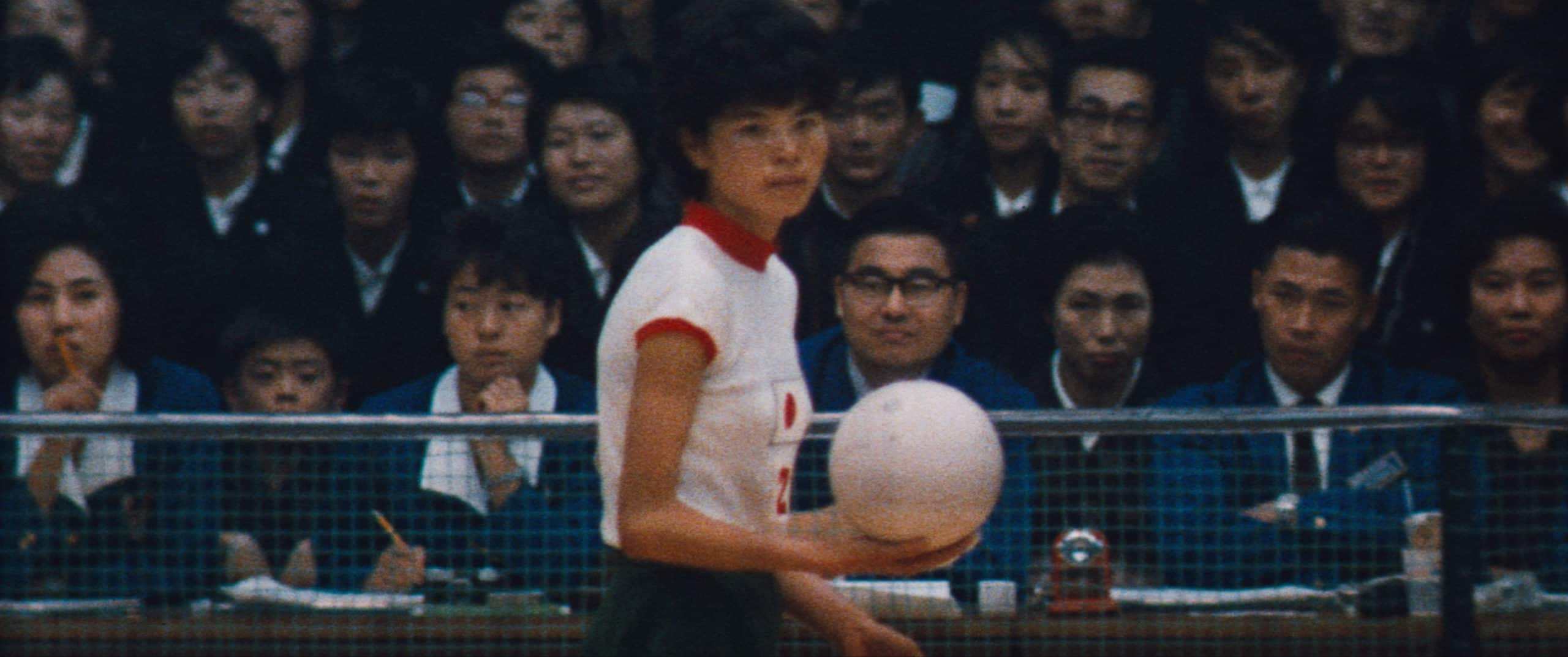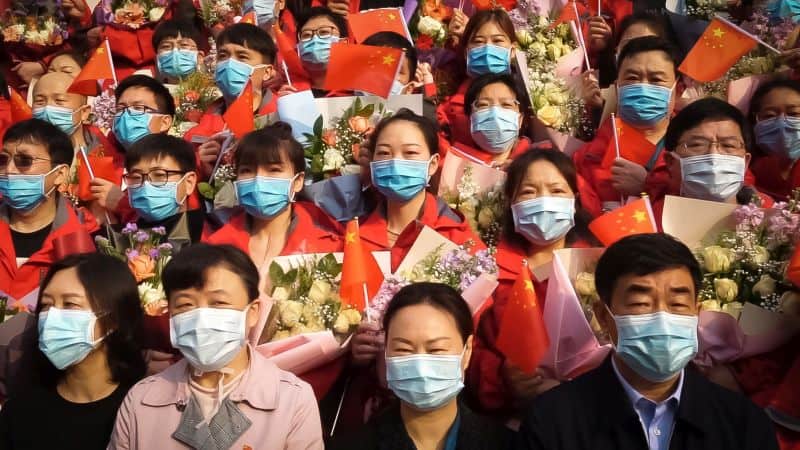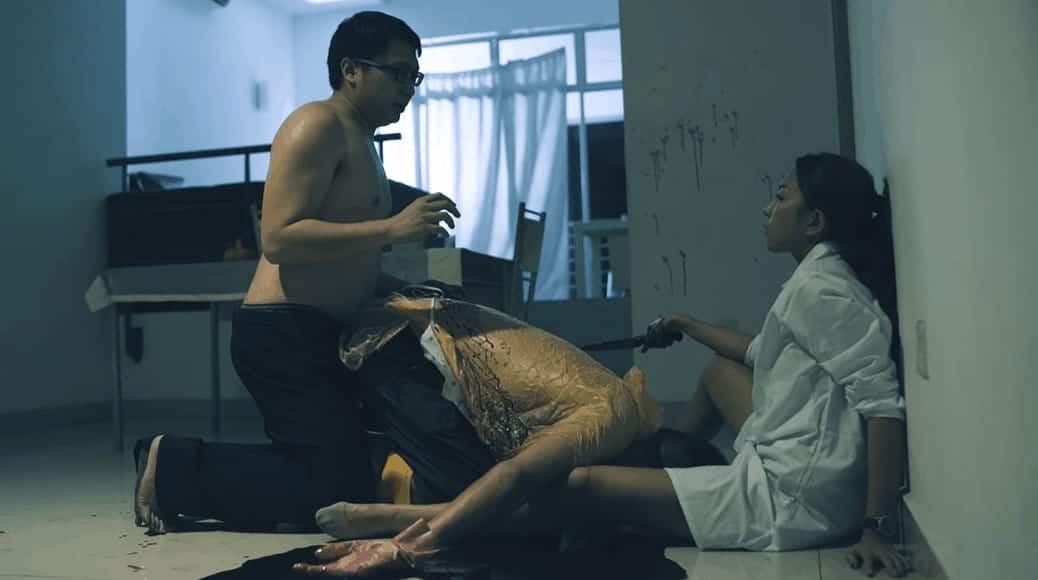Victims of sexual assaults may report the crime against them to the police, but often the perpetrators walk away unscathed, never caught. The victims try to push forward with life as best as they can, never really forgetting what happened to them but trying to lock up the incident in a remote part of their minds. But what happens if, years later when the victim has seemingly moved on, they find out that the perpetrator has been caught? This is the central idea behind Park Sun-woo's debut film “Way Back Home” (not to be confused with the Jeon Do-yeon starring 2013 film of the same name), which premiered at last year's Busan International Film Festival.
“Way Back Home” is screening at Osaka Asian Film Festival

Jeong-won lives an unassumed life, juggling her work as a swimming instructor at the youth centre and preparing for an impending house move with her doting carpenter husband Sang-u. The two are trying to have a baby, with no success so far. Her quiet life, however, is thrown into turmoil one day when she receives a phone call from the police saying that the man who allegedly raped her ten years ago has finally been caught, an incident which she has so far hidden from Sang-u. Jeong-won struggles to decide whether and how to tell him after all these years, while her adoptive parents, Sang-u's employees, who are aware of what happened, try to convince her to not keep her husband in the dark for too long.
Lots already has been said and portrayed in films about the actual act of sexual assault and more still of its immediate effects on the victim and those around her. But Park Sun-woo's film is not interested in that. Instead, she focuses on the human story and on the relationships that are strengthened or broken by the ghosts of the past that come catching back on you, while letting the actual event feel like a subplot or a mere plot device to the more important story. The emotions and their corresponding actions that Jeong-won goes through are very raw and feel authentic. The closing up in front of her husband, sister and mother while opening up to her uncle and aunt, who she calls her adoptive parents, feels completely justified, particularly her determination to not be seen as a rape victim by those around her, most importantly by her loving husband, who is extremely confused and frustrated by what transpires. These sentiments began to make further sense once Jeong-won's younger sister features more prominently in the film's second half.

Conversely, if one were being highly critical (which frankly this film does not deserve) the only minor issue that the movie faces is with the character of the husband. Yes, he is indeed a genuinely likeable character who the audience can mostly empathise with, but this leaves him being a bit one-dimensional, even when his wife is being rather unreasonable in her determination to not talk to him about the incident. Putting oneself in his place, which this film in fact makes you do with every character, you would be frustrated, even angry, which would be very natural but that never comes to be. Just when you think you might finally get to see a different shade to him, he comes back out with an umbrella for his wife to shade her in the pouring rain.
As Jeong-won, Han Woo-yun is the life of the film and her performance becomes further fascinating when you realise that this is her debut as well. Jeong-won is a complex character going through complex emotions and Han Woo-yun portrays them like a seasoned pro. The different emotions she brings to her face in the short scene where she first gets the news of the perpetrator's arrest over the phone are extraordinary, as is the scene in the car with her husband or even the emotional breakdown near the end.

Jun Suk-ho is an actor mostly seen in much smaller, throwaway roles (most audiences might know him as the magistrate with the hots for Bae Doona's character in Netflix's “Kingdom”), so the gravitas he brings to Sang-u catches you off-guard and is praise-worthy. His transition from the loveable, doting husband to the confused yet supportive partner who wants to be his emotionally struggling wife's pillar of strength but never quite gets to be is noteworthy, particularly in the aforementioned car scene. Seasoned supporting actors Yoo Jae-myung and Yum Hye-ran provide decent company to the two as Jeong-won's uncle and aunt but it is Jung Da-eun's understated performance as Jeong-won's sister that surprises.
Because this is primarily a “human” film, the cinematography doesn't attempt anything fancy but is content, just like Park Sun-woo's script, in keeping its humans centre-frame. The different locations used are well selected and in a small scene, it was amusing to see and recognise the house that played a key part in “Moving On”, another participant (and winner) at Busan last year. Music is sparsely used but manages to fill the silences well with its moody undertones.

The title “Way Back Home” does seem confusing for a while but ends up being befitting as the movie reaches its closure. This is, after all, a story of a woman finding her way back to her husband and her family in the midst of a crisis she never expected to face. Despite the heavy subject that starts our characters' journeys, “Way Back Home” is ultimately a unique love story. This is a truly fine film from a debutante director featuring an excellent performance from a debutante actress.















